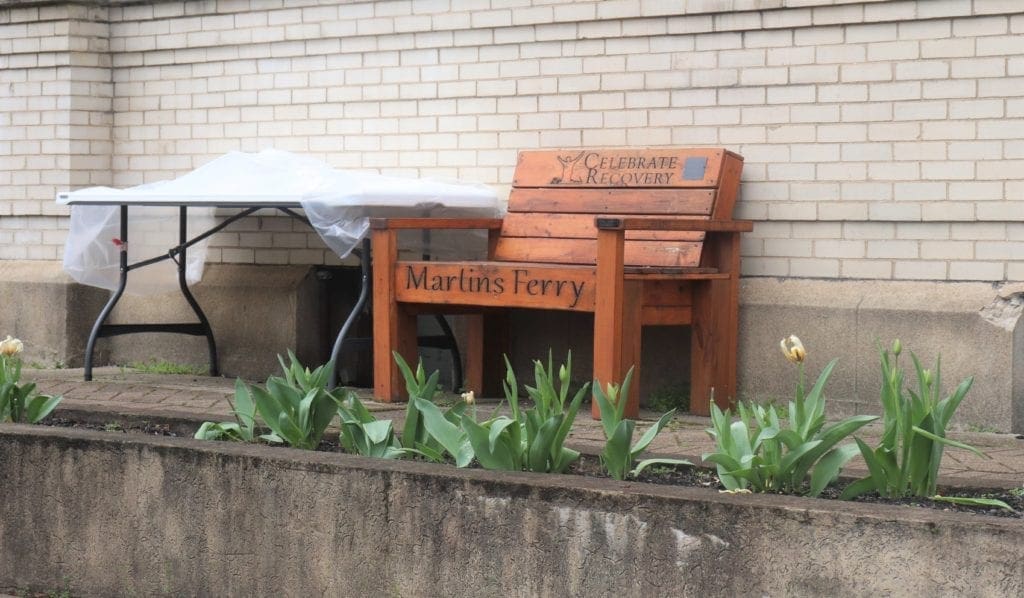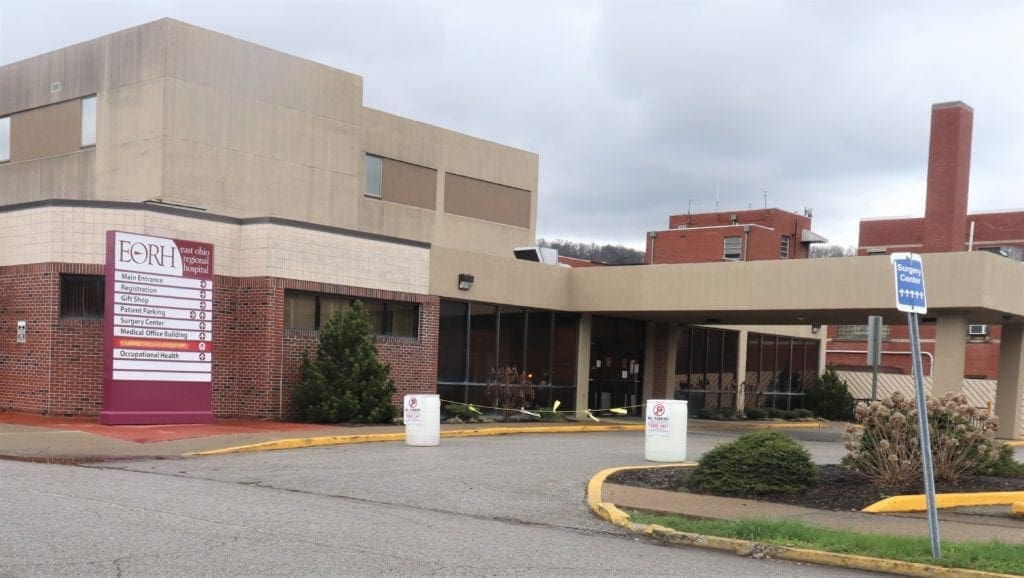Martins Ferry residents thirsting for any shred of good news received some yesterday when Mayor John Davies announced the city is granting monetary relief on April’s utility bills.
Portions of the water, sanitation, and sewer bills will be discounted, with the total amount equaling a $25 deduction.
“What we’re trying to do is give the people a little help before their stimulus checks get here,” Davies said. “The break will be coming here in April. Our goal is to help all of our residents.”
Davies said the city’s original intention was to forego the bills entirely for the month of April, but that idea quickly fizzled when the city realized how much that generous of a move would cost.
“We have over 4,800 customers in the system, and the cost would have been a quarter of a million dollars,” Davies admitted. “That’s a substantial amount from the budget. Even at $25 you’re looking at around $100,000.”
The mayor reiterated the move is for all customers, including those behind on their bills. Speaking of which, those facing shutoff or cessation of their services will not be turned off during the pandemic struggles.
“We’re not shutting anyone off while this is going on,” he said. “We don’t want to take a chance on spreading the virus and not having them be able to wash their hands and perform basic healthcare.”

Food Handout Going Well
The city is also distributing bags of food outside the city building to both residents and non-residents. There is a table set up with bags of non-perishable items. It will be available from 8 a.m. to 2 p.m. daily.
Davies said the city had been set up on Tuesday and Thursdays only for an hour, but the number of participants seemed limited by the time constraints.
“We had 30 the first day on Monday and about 20 (Tuesday),” Davies said. “We have plenty of food we can pass out, and once we get low, we can ask for donations again.”

Fight for EORH Continues
Not all is good news in the Purple City, at least for the moment.
Davies and city officials have been fighting to get East Ohio Regional Hospital back up to provide the county’s largest municipality direct access to healthcare once again. And that was BEFORE the whole coronavirus mess.
Now, the mayor believes getting the hospital open is more pertinent than ever.
“Here’s my thing,” Davies said. “If I miss my mark by being proactive, no damage has been done. If they miss by being reactive, we have people die. I’m not going to give up this fight. We’ll keep fighting until there are no local avenues left to getting the hospital open.”
Davies has talked with Ohio Sen. Frank Hoagland, who is checking on funding and who in an interview with WTOV9, said he is working to bring JobsOhio representatives down to Martins Ferry after the pandemic scare has died down. Davies has called the governor’s office without hearing back. He called the state attorney general’s office, who put him in touch with the Ohio Dept. of Health. The result? Nada.
Sen. Sherrod Brown’s office talked with him and was supposed to be checking on some options, but he’s yet to hear back. Rep. Bill Johnson also said in a prepared statement to the media that, “While there are a lot of unanswered questions about the readiness of the hospital, if it was to reopen, at this moment, Ohio does not face a shortage of hospital beds due to the coronavirus.”
The operative word left out of that quotation from Johnson is “yet.” Davies doesn’t want to wait until yet comes to fruition. After all, of Martins Ferry’s 7000-plus residents, more than 60 percent are elderly and classified as high risk.
If the virus started to spread rapidly in Martins Ferry, the effects on the town and its population could be devastating.
“We’ve hit several roadblocks along the way,” Davies said. “But this is an election year, and the people of this Valley need to stick together. If the politicians don’t want to help us, we don’t need to help them get back in office. I feel the riverfront people of Belmont County have been forgotten about. It’s time we band together the riverfront and all communities and make sure the Valley is getting its share of local government and state money.”
Davies noted that since the mills are gone and the coal mines aren’t what they once were, the Valley doesn’t hold the same importance to politicians as it once did.
“Don’t listen to what they say; watch what they do,” he added.

